By Warren Nunn
A world-renowned, gold-medal-winning product made from lemon-scented eucalyptus leaves was once manufactured on the Capricorn Coast.
For anyone who’s stopped at a small picnic area on Coorooman Creek Road, just off the Emu Park-Rockhampton road, there’s an historical marker that tells a story.
It gives a brief outline of the Queensland Eucalyptus Oil Company and the man who established it in 1891.
His name was Thomas Ingham and he set up business near the Coorooman Creek Brewery that his neighbour and fellow entrepreneur Edwin Macaree operated.
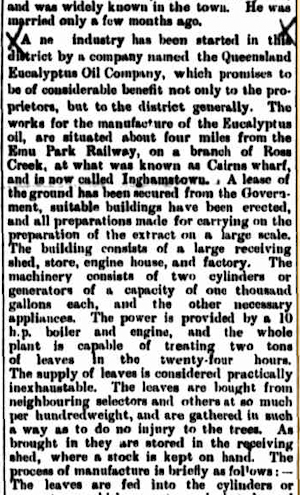
A newspaper report from Saturday 3 October 1891 details Ingham’s plant.
Ingham was a Rockhampton-based pharmacist who quickly established a lucrative business that won international plaudits – and a gold medal – at the 1893 Chicago World Fair.
[As an aside, the Chicago exhibition was an extraordinary event on many levels. This documentary is a very long, in-depth and really challenging reflection on the occasion.]
Gold medal class
To be clear, the gold medal was for the whole display that Ingham put together but the eucalyptus products were at the forefront.
A newspaper report describes the way in which images brought from the Chicago fair were displayed to enthralled locals.
“The entertainment consisted of a series of coloured and plain views of buildings at the World’s Fair, thrown on to a curtain, and illuminated by limelight.
“The coloured views, in particular, were exceedingly pretty and the audience applauded heartily whenever a scene of more than usual beauty and interest was presented.
“The instantaneous illumination of darkened buildings by electricity was specially good, and never failed to delight the spectators.
Ingham cheered
“A view that was loudly cheered was Mr T. Ingham and his eucalyptus oil trophy, said to be one of the chief attractions at the exposition.”
An earlier newspaper report of the Coorooman Creek operation said “machinery consists of two cylinders or generators of a capacity of one thousand gallons each, and the other necessary appliances”.
It continued: “The leaves are fed into the cylinders or generators, which are steam jacketed, and after remaining there a sufficient time are discharged at the other end. The vapour, which has been generated by this steaming process, passes up through pipes into the condenser or still, and passes thence as crude oil into the receiver.
“Afterwards, it is finally treated and purified by a process invented by Mr Ingham, chemist, Rockhampton.”
Along with the oil, Ingham made ointment, decongestant and soap.
Ingham expanded the business but, by 1915, the operation folded because leaves were in short supply.
An unkind cut
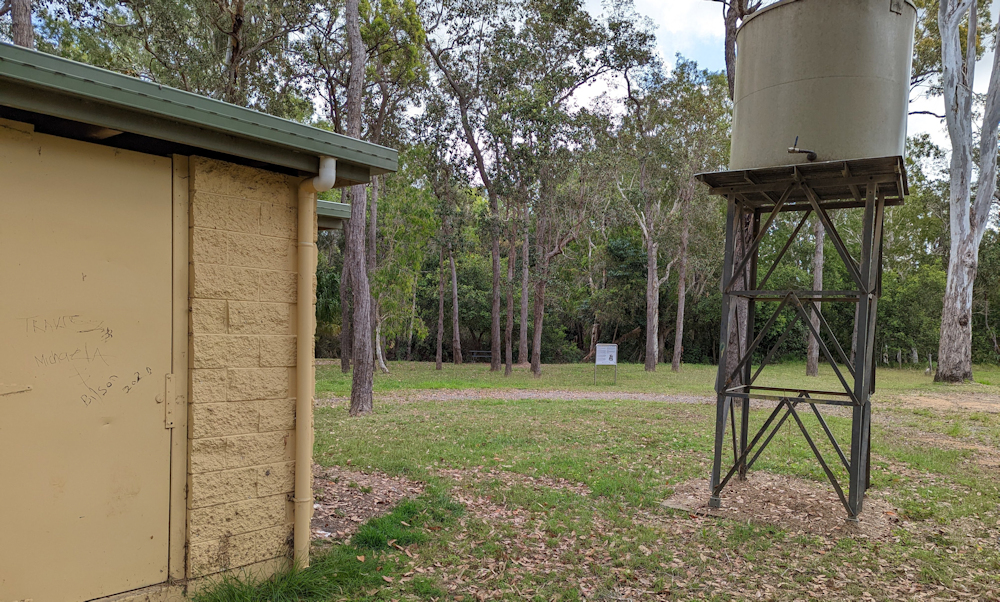
The defunct toilet block and water tank on the site once occupied by a eucalyptus oil-producing plant.
Photo: Warren Nunn, October 2022.
While Ingham had the vision for the products and processes, he didn’t account for the fact that his suppliers decided to cut down trees to get the leaves.
That was never going to be sustainable even though a newspaper report in 1891 said the supply was “practically inexhaustible”.
[perfectpullquote align=”right” bordertop=”false” cite=”” link=”” color=”#16989D” class=”” size=””]Macaree supplied the Australian Army with eucalyptus oil.[/perfectpullquote]
However, 20 years later one James Macaree restarted the process on the same site.
Until 1948, Macaree supplied the Australian Army with eucalyptus oil.
A by-product, tannic acid, was used to descale boilers and car radiators.
Macaree’s venture
Macaree was a son of Edwin Macaree who established the Coorooman Creek Brewery in 1888.
Macaree had bought back the land his father sold in 1910.
A 1931 newspaper report of Macaree’s eucalyptus plant begins:
“Leaves of the scented gum that grow in abundance on the Emu Park Road are being turned to commercial uses by Coorooman Eucalyptus Products, a firm controlled by Messrs Macaree and Son.
“The collecting of leaves gives employment to about 30 adults and juveniles in the district.
“A modernly equipped plant distils eucalyptus oil, which in turn, is bottled for medicinal purposes.”
A sad site now
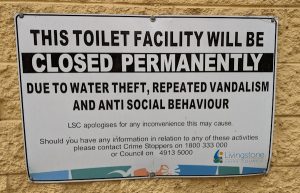
Because of misuse, the toilet block is now closed and the community can no longer even enjoy a picnic on the site where a business once flourished.
Photo: Warren Nunn, October 2022.
Three wooden picnic tables, a defunct toilet block, a water tank, and the historical marker are all that remain on site where these businesses once operated.
Just consider how innovative and daring Thomas Ingham was to launch his venture. He then took his product to America and presented it (and a bit of Australia) on the world stage.
Now … a sign on the toilet block is a rather sad indictment on the present day given the enterprise that once blossomed on the same block of ground.
It reads in part: This toilet facility will be closed permanently due to water theft, repeated vandalism and anti-social behaviour.
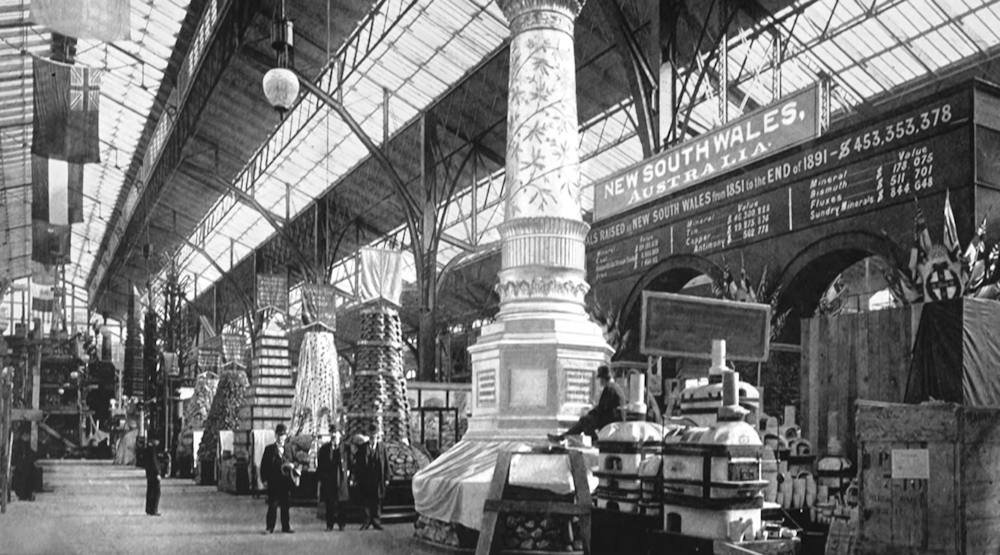
Pavilion that includes Australian exhibitions at the 1893 Chicago World’s Fair. Thomas Ingham’s display most likely was in the same building.

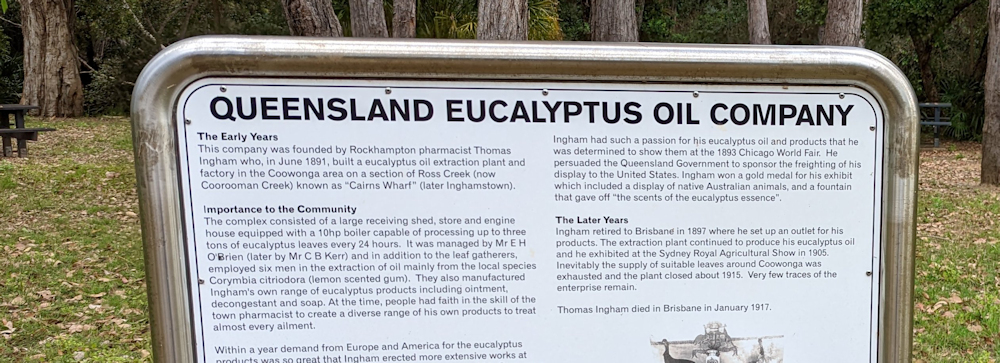
Recent Comments